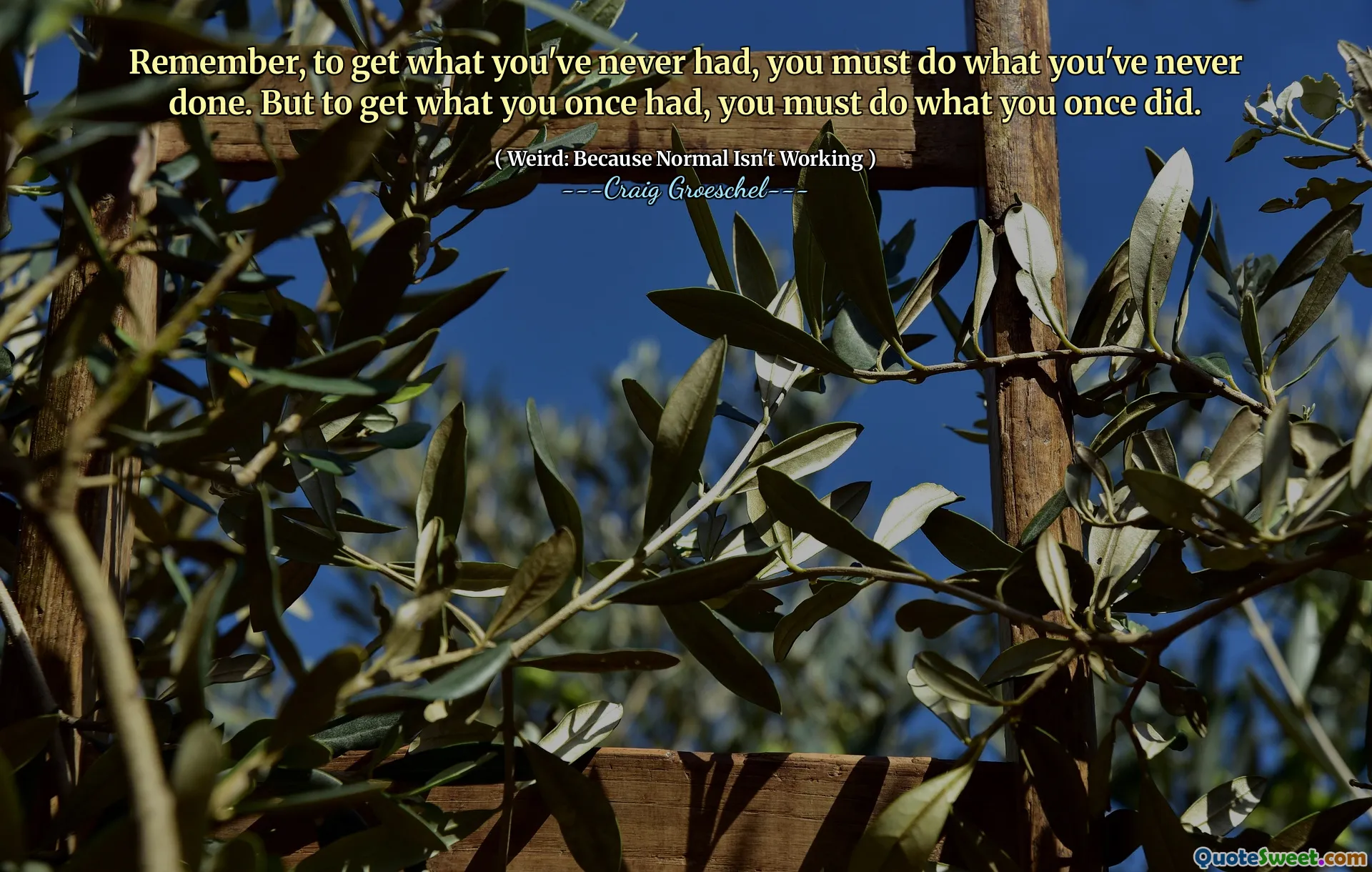
Remember, to get what you've never had, you must do what you've never done. But to get what you once had, you must do what you once did.
This quote underscores the importance of change and adaptation in achieving growth. Often, people find themselves yearning for new opportunities or different experiences but hesitate to step outside their comfort zones. To attain something new, it requires effort and actions that are unfamiliar—pushing boundaries and challenging established habits. It’s a reminder that transformation begins with courage; doing what’s comfortable won’t lead to new outcomes.
Simultaneously, the quote touches on the nostalgic desire to revert to former states or past successes. Returning to what once worked demands a willingness to revisit earlier behaviors and routines, acknowledging that past solutions may still hold value or deserve reconsideration. This duality emphasizes that progress isn’t solely about breaking free from the past or blindly chasing new horizons but understanding when to embrace change and when to utilize familiar methods.
In the context of personal development, this message advocates for intentional growth. It’s about recognizing that change is often uncomfortable, but necessary. Whether striving for innovation or restoring previous achievements, it requires deliberate action. It encourages us to reflect on our motivations—are we pursuing new heights out of genuine desire, or simply out of need for novelty? When seeking to regain something, we must acknowledge what worked before and be willing to revisit those practices.
In essence, this insight promotes a mindset of strategic action and resilience. Change isn’t inherently difficult; it becomes so when we resist it. Embracing both novelty and familiarity with purpose can lead to meaningful progress and fulfillment, aligning actions with desired outcomes.







